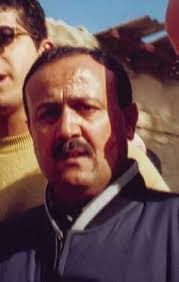Understanding Marwan Barghouti: The Face of Palestinian Politics

Introduction
Marwan Barghouti is a significant figure in Palestinian politics, recognised both within the Palestinian territories and internationally. His prominence stems from his role as a leader of the Fatah political party and his conviction in an Israeli prison for his involvement in the second Intifada. Barghouti’s leadership style and political moves continue to influence the Palestinian narrative amid ongoing tensions in the Middle East.
Barghouti’s Political Journey
Born on June 18, 1959, in the village of Kobar near Ramallah, Barghouti became politically active in his youth, joining the Palestinian Liberation Organisation (PLO) and later becoming a founding member of the Al-Aqsa Martyrs’ Brigade. His early involvement in politics was characterised by a commitment to armed resistance against Israeli occupation.
Barghouti was arrested by Israeli forces in 2002 during the second Intifada. He was tried and sentenced to five life terms for his actions, becoming a prominent martyr figure for many Palestinians who see him as a symbol of resistance.
Current Relevance
Despite his incarceration, Barghouti remains a key player in Palestinian politics. As the conflict between Israel and Palestine continues, many in Palestine and abroad call for his release, viewing it as essential for peace negotiations. His ongoing popularity is evidenced by his high visibility in Palestinian media and public sentiment.
Recent events, including rising tensions in Gaza and the West Bank, have revitalised discussions surrounding Barghouti’s leadership potential. In the wake of internal divisions among Palestinian groups, many believe that Barghouti could serve as a unifying figure in negotiations for Palestinian statehood.
Conclusion
Marwan Barghouti’s status as a political prisoner and leader reflects the complexities of the Israeli-Palestinian conflict. His influence persists despite his physical absence from the political landscape. As political dynamics shift in the region, Barghouti’s potential role in future negotiations could be a focal point for both Palestinians seeking to unify their leadership and for international mediators aiming to broker peace. For readers, following Barghouti’s developing story provides insight into the broader issues of Palestinian rights and aspirations, marking him as a critical figure in contemporary Middle Eastern politics.
